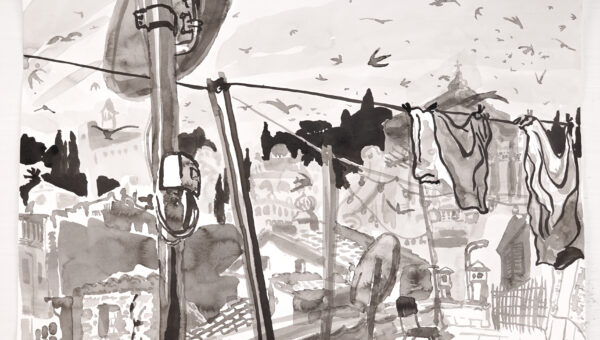After a surgery your mom described as
being scooped out like a melon, after
you’d had to call the hospital because
her care instructions were unclear,
after she’d had an accident and you’d
helped her change clothes while promising
the first night home was always the hardest,
your mom grimaced and said she bet
you hadn’t known what you had signed up for.
That was the first draft. In the second,
you replied that actually you did, but by then
she’d closed her eyes and wasn’t listening.
The third draft went the way you’d expected:
laundry, toast, pills, jumbo maxi pads
you covered her incisions with—a handy tip
you’d picked up years ago. You put on
a brisk patience—helpful but not hovering—
and hoped it hid your fear. In the fourth draft,
you knew you shouldn’t ask but felt
you’d earned the answer you were fishing for:
Are you surprised that I’m such a good nurse?
In the fifth, silence followed by how late the mail
had come. You weren’t sure if that meant
she hadn’t heard your need for approval
or if she disagreed with the word good
and was sparing you hurt. In the sixth draft,
instead of gratitude, your mom’s goodbye
included that you should’ve stayed longer,
and you explained again why you couldn’t,
then cried on both your flights. In the final draft,
she recovered from surgery but the cancer
came back. On what you didn’t know
would be your last visit, you helped her dust
the ceiling fan and paint a picnic table,
and when she said she was tired of treatment,
you said it was okay to quit, then left
unsure which answer she’d asked for.

